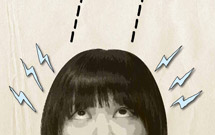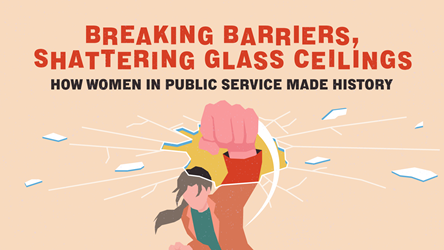When Everything Seems Grey
It is easier said than done to “always look on the bright side of life”. In fact, more Singaporeans are seeking treatment for depression, anxiety and other mental disorders. So is your glass half empty or half full? It could make all the difference to your mental wellbeing. - by Chen Jingting

Kiasuism, a seemingly harmless, go-getting attitude among many Singaporeans, can threaten our mental health. This is, at least, according to consultant psychiatrist Adrian Wang, who always tells his patients to “stop being so kiasu!”
Dr Wang, who runs a private clinic at the Gleneagles Medical Centre, says his patients – mostly working adults, two-thirds of whom are women – are stressed mainly over the high cost of living and relationship problems.
Stress is inevitable and can even be beneficial as it pushes one to achieve life goals, but too much of it can be detrimental, he says.
Locally, mental meltdowns seem to be on the rise.
The year 2009 saw a rise in suicide rates compared to 2008. The increase was greatest among youths aged 10-29: 40 per cent (64 in 2008, 91 in 2009). Mypaper reported earlier this year a 10 per cent rise in the number of patients in their 20s seeking help for mental illnesses. Most suffer from depression and anxiety disorders due to stress from work and relationships.
The World Health Organisation predicts that by 2020, depression may be the second greatest contributor to global diseases.
Dr Wang, who runs a private clinic at the Gleneagles Medical Centre, says his patients – mostly working adults, two-thirds of whom are women – are stressed mainly over the high cost of living and relationship problems.
Stress is inevitable and can even be beneficial as it pushes one to achieve life goals, but too much of it can be detrimental, he says.
Locally, mental meltdowns seem to be on the rise.
The year 2009 saw a rise in suicide rates compared to 2008. The increase was greatest among youths aged 10-29: 40 per cent (64 in 2008, 91 in 2009). Mypaper reported earlier this year a 10 per cent rise in the number of patients in their 20s seeking help for mental illnesses. Most suffer from depression and anxiety disorders due to stress from work and relationships.
The World Health Organisation predicts that by 2020, depression may be the second greatest contributor to global diseases.
Mental Health Boost
To improve mental health services, the government has invested about $88 million since 2007, with plans for another $17 million every year from 2012. Medisave has been extended to cover schizophrenia and major types of depression since October 2009.The Health Promotion Board (HPB) offers the Treasure Your Mind programme – a series of talks and skill-based workshops covering topics such as self-esteem and managing change – to cultivate mental wellness in the workplace. So far, the four-year old programme has reached 44,800 people from the private and public sectors.
HPB’s Be Positive project channel on YouTube has a series of catchy videos that urge people to

remember that we are in control of our own thoughts and emotions… If we change our perspective, we can learn to be more positive in life.
The site also encourages youths to upload inspiring, feel-good videos.
Myths Busted
Advocacy group Silver Ribbon Singapore actively organises monthly public education events to bust myths surrounding mental health issues.Myth #1: Mentally unwell people are possessed. This is such an entrenched belief that Silver Ribbon brings paranormal investigators and psychiatrists together annually to debate the issue and to explain the differences between psychosis and possession. Executive director Porsche Poh says, “We always have full attendance for such talks, with many young people among the audience.”
A photography exhibition of mental health patients and their caregivers, held from August to September this year at Orchard Central, aimed to debunk Myth #2, that mental health is untreatable. The event was jointly organised by Silver Ribbon and HPB.
Such myths have stigmatised mental illnesses, hindering patients from seeking help, says Ms. Poh. Many are still wary of the stigma of being treated at the Institute of Mental Health. They are unaware of other mental health services available, such as HPB’s Healthline, and those offered by the Singapore Association for Mental Health, and the Raffles Counselling Centre at Raffles Hospital.

Feel Good on Your Own
Programmes aside, there are simple ways by which individuals can cultivate mental wellness.Eat and rest well, because your physical health affects your mental state, says Dr Wang. And take time off to relax, get a hobby, or exercise. Build a social network of support of people with whom we can share our problems.
Re-alignment of priorities helps too. “Is getting that promotion or winning that argument really so important?” asks Dr Wang. “Think about what you really want out of life.”
It might help you spot the silver lining in the dark clouds above.
- POSTED ON
Sep 8, 2011
- TEXT BY
Chen Jingting









